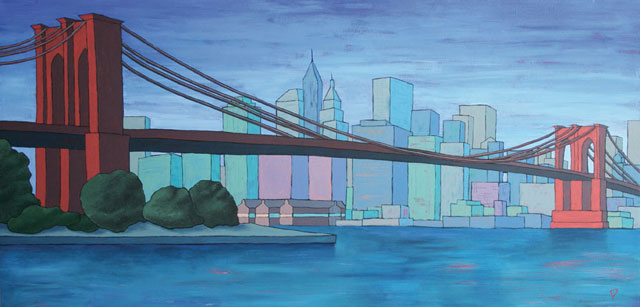Essay by Brendan McEntee
“No New Thing”
A brilliant (but shy) friend of mine recently shared an article in the Boston Review by Stephen Burt, http://www.bostonreview.net/BR34.3/burt.php — which suggests that poetry is involved in yet another change, which Mr. Burt describes as “The New Thing.” drawing from William Carlos Williams’ phrase: “no ideas but in things.” The article, while interesting, is, at heart, flawed. Burt writes: “The new poets pursue compression, compact description, humility, restricted diction and–despite their frequent skepticism–fidelity to a material and social world.” Categorizing poets is akin to cat herding and I, for one, am wary of “movements”: they reduce the impact and minimize the individual — for which art has always been a bastion and refuge— in celebration of commitment to some ideal which is ultimately fallible. Burt suggests that the ever-present pendulum has begun to swing in the other direction. Due in part to September 11th, a nation at war, a global economic collapse, poets are looking outward, attempting at precise language that rejects the sentimental, called for an greater liberation, abandoning all previously used forms, connecting to the area and items around you: not the beach but the blanket; not the diner but the coffee cup; not world history but local history.But is it “The New Thing” or is it more “The New New New Thing?” After all, the Beats, with their Everyman guise, were guided by Williams. And then there’s Bukowski, a younger persons’ poet—to be read, enjoyed and gotten past—who was a confessional poet with Beat language. And we can also include Pop Art, with it’s reliance on “words from without” as well as aspects of the neo-formalists, which seek a return to form as a way to create the poetic without the overt personal.
Burt states further on:“poetic attention to facts and things—emulated, reclaimed, quoted, re-framed—speaks to the material conditions a left-wing politics works to change. For other makers of the New Thing though, the solidity they seek is not so much economic as phenomenological: the poem finds, and emulates, some permanence-it is, and describes, something with weight and ‘measure,’ small enough to hold in the hand.”
This is to me, a distinctly Asian idea which brought to mind a quote from a Anthony Bourdain when he was travelling in Tokyo:
“The ability to look at one thing and only one thing is something totally and wonderfully alien to me. But it is something I admire and appreciate about the Japanese. A rock. A pond. A single piece of fish. A grain of rice. To know these things, really know them and appreciate them in a single gesture or series of gestures….”
lays claim to the same process that Burt applies to the New Thing writers: minimalism, the composition, and the surface. But this idea of the small, the simple experience that will exist in this moment and this moment only is certainly not “New,” not modern, and certainly not exclusive to the modern world.
The idea though that “we strive for accuracy” strips some of the beauty and pleasure out of poetry. Certainly “unchecked imagination” does no one any good, but neither does poetic frigidity. Perhaps I grumble with the “Arts & Crafts” approach to writing: poetry isn’t Stickley furniture or a Shaker basket. “The windowsill…represents the neglected tableaux of ordinary life, themselves sufficient symbols, rightly seen….” Maybe it’s just me, but this is nonsense. Unless we’re putting the artist in the role of godhead, creating symbols from found symbols is an abstraction. We’re not taking a tree from the woods and making a chair. We’re taking the chair and making a poem. It’s already at a remove. Either Whitman or Poe once said of America: “We’re a nation of railroad builders, not poets.” The commercial divide, the concreteness of a railroad tie, the Puritanical impulse to have only ‘useful’ things that draw a profit…this goes against of the value of poetry. Poetry and language, by their nature are not things, although there’s a kit you can by at your local crafts store that allows you to emblazon words into concrete “stones” for your garden. It can be, but shouldn’t exclusively be that. Looking for ‘”…just the right words, and only those words, they might get that world [spiritual] right,” while a good motivation, sets up a poet for frustration and failure unless they acknowledge that it is only the looking that will happen, never the execution. The world will never be right nor will the words ever be perfect. This compression speaks of a desire to have formal restraints without form, not even haiku.
Is “the New Thing” what we want from poetry or is it what is truly happening? Are poets setting an agenda, calling on “the durable legacy of Williams” where, in the words of poet Maureen McLane: “The “common” fragments that these old kings threw away are all that survives of them now.”? I don’t believe so. If there is indeed a trend, a fashion toward verbal reduction, a celebration of the minimal—poetry as demi-glace: all that we can count on is that this too, shall pass.
Brooklyn Bridge
© Denise Porthun Jankauskas

